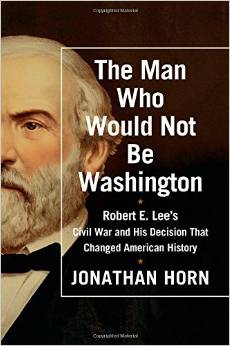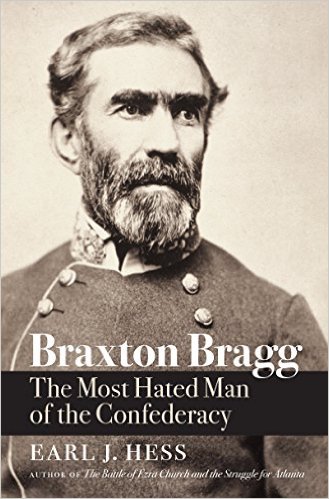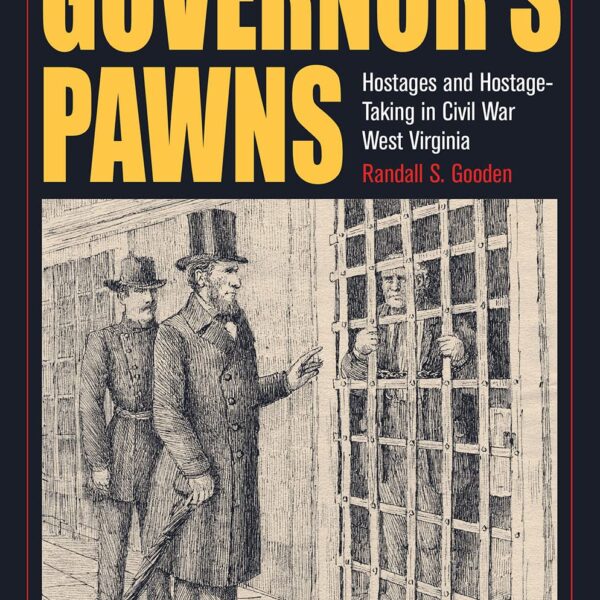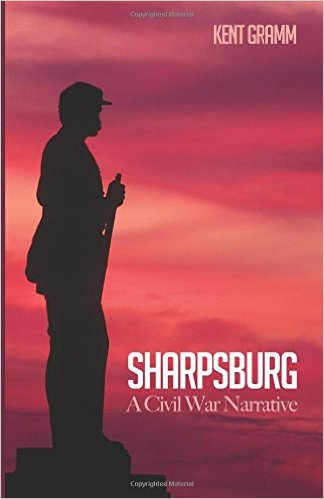The Man Who Would Not Be Washington: Robert E. Lee’s Civil War and His Decision That Changed American History by Jonathan Horn. Scribner, 2015. Cloth, IBSN: 978-1476748566. $28.00.
 This is not really a biography of Robert E. Lee so much as it is a series of episodes in his life. Curiously, the episode which the subtitle makes central to our expectations—“His Decision That Changed American History”—actually constitutes only one out of the thirteen chapters of the book. Nor, for that matter, is the theme of the main title—“The Man Who Would Not be Washington”—really a dominant motif. Jonathan Horn, a former speechwriter and adviser in the George W. Bush White House, draws our attention at the beginning to the connection between Lee and George Washington through Lee’s father, “Light-Horse Harry” Lee, and there are from time-to-time reminders of other threads that link Lee and Washington (e.g. that Mary Custis Lee bore an unusual resemblance to Martha Washington, her great-grandmother). But Horn makes no case like that of Richard McCaslin for a Lee who stands self-consciously in the shadow of Washington, the way Lyndon Johnson did of FDR. “Lee’s true struggle to reconcile his actions with the Founding Fathers’ occurred outside the public eye,” Horn writes, and Horn keeps that struggle mostly out of the readers’ eye in this book, as well. “He was not a Washington,” Horn concludes cryptically, “He was a Lee.”
This is not really a biography of Robert E. Lee so much as it is a series of episodes in his life. Curiously, the episode which the subtitle makes central to our expectations—“His Decision That Changed American History”—actually constitutes only one out of the thirteen chapters of the book. Nor, for that matter, is the theme of the main title—“The Man Who Would Not be Washington”—really a dominant motif. Jonathan Horn, a former speechwriter and adviser in the George W. Bush White House, draws our attention at the beginning to the connection between Lee and George Washington through Lee’s father, “Light-Horse Harry” Lee, and there are from time-to-time reminders of other threads that link Lee and Washington (e.g. that Mary Custis Lee bore an unusual resemblance to Martha Washington, her great-grandmother). But Horn makes no case like that of Richard McCaslin for a Lee who stands self-consciously in the shadow of Washington, the way Lyndon Johnson did of FDR. “Lee’s true struggle to reconcile his actions with the Founding Fathers’ occurred outside the public eye,” Horn writes, and Horn keeps that struggle mostly out of the readers’ eye in this book, as well. “He was not a Washington,” Horn concludes cryptically, “He was a Lee.”
Yet, I am not sure that this is necessarily a fault, no matter how hugely the title misdirects our expectations. Lee certainly enjoyed reflecting on the connections the Revolutionary Lees had with Washington, and even earlier times when the Lees were the great men of Virginia’s Northern Neck and the Washingtons minor landowners. But Robert E. Lee was chary of drawing close parallels between himself and Washington – in fact, the only occasion when he made an identification with Washington explicit was in a letter to Pierre Beauregard after the Civil War had quenched any possibility of Lee playing a role like that of Father of His Country. The president of the Virginia state convention, John Janney, actually tried to tie Washington’s behavior to Lee’s kite in 1861 by claiming that “When the Father of his Country made his last will and testament, he gave his swords to his favorite nephews with an injunction that they should never be drawn from their scabbards, except in self-defence or in defence of the rights and liberties of their country.” But Lee gently rebuffed the opportunity by replying that he “would have much preferred had your choice fallen on an abler man,” and that it was in “the service of my native State,” not his country, that he proposed never “again draw my sword.”
To many others, it was never particularly clear what star Robert E. Lee was following. His father, whom he scarcely knew, was one; Winfield Scott was another, and in an indulgent way, so was his father-in-law, George Washington Parke Custis. But four decades elapsed before Lee made a pilgrimage to “Light-Horse Harry” Lee’s forlorn grave on the Georgia coast, and he paid a special call on Scott in 1861 only to inform the lumbering old giant that he intended entirely to disregard Scott’s advice on the most critical moment in Lee’s (and the nation’s) life. At the same time, Lee was never a raving secessionist. Almost to the moment that Virginia seceded, Lee consistently denied the constitutional and legal possibility of secession and (very much like Lincoln) condemned it as nothing but revolution. He was so tepid in his enthusiasm for the Confederacy that one of Mary Boykin Chesnut’s acquaintances “said in the street to-day: ‘At heart Robert E. Lee is against us; that I know.’” Nor was this estimate entirely wrong: Lee never ceased from 1861 until 1865 to criticize Southerners for being too half-hearted, too lacking in earnestness, to overcome the weight of Northern power. When his command of the Virginia state forces was superseded in May 1861, Lee actually contemplated retirement. When the end arrived at Appomattox, it came “just as I have expected it would end from the first.”
In pursuit of this mystery, Horn swerves neither in the direction of Douglas Southall Freeman’s romantic devotion, nor to the harsh revisionism of Thomas Connelly, Michael Fellman or Alan Nolan. Horn’s Lee is neither a demigod of duty nor a tired, passive fatalist. Unlike Michael Korda’s recent Clouds of Glory, Horn has done an impressive amount of archival research, especially in the Lee Family Papers in the Library of Congress, and his writing is never less than gracious and unencumbered. If there is a consistent theme in Lee’s psyche, Horn believes it to be self-denial, the sense that Lee was never to get his “own way,” but must be always dependent on others who consistently left him down, from his father to his father-in-law to his wife to his “native state.”
As a succession of vignettes rather than a full-fledged narrative of Lee’s entire life, Horn mostly passes-by the minutae of Lee’s military career. The Seven Days earn just nine pages, the Maryland Campaign seven; the fate of Arlington receives more attention than the fate of the Army of Northern Virginia at Appomattox. But this leaves Horn free to bring us closer to the loyalties and affections which were of paramount importance to Lee in both peace and war, of which the Arlington estate was a central one—even though, strictly speaking, he did not own Arlington, and once suggested that the place he really coveted was Stratford Hall, where he was born (even though he had never lived there after he was four). For a book of only 250 pages, Horn touches on myriad details—Lee reading Winfield Scott’s autobiography on the way to Appomattox; his sole meeting with Lincoln at a White House reception in March 1861; and the destruction of the other major Lee family property, White House, in 1862. And more so than any biography of Lee since Connelly’s The Marble Man, Horn provides us with a palpable sense of having met the man who, for all his delicate charm, remained by his own admission “not very accessible.”
The algorithm that will explain Robert E. Lee and “the decision that changed American history” has yet to be written. But Jeffrey Horn’s The Man Who Would Not Be Washington comes as close as we are likely to get for some time, even if, in truth, the real subject of his book is the man who refused to be Robert E. Lee.
Allen C. Guelzo is the three-time Lincoln Prize-winning author of Gettysburg: The Last Invasion (2013).




